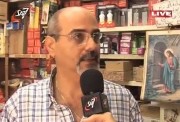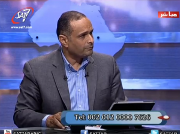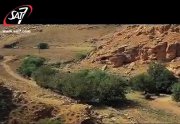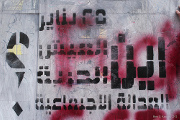Egypt (MNN) ― Egypt's new constitution seems to have everyone on edge.
"There's a lot of fear, a lot of anxiety," says Rex Rogers, president of SAT-7, a Christian satellite television ministry to the Middle East and North Africa.
According to Rogers, vague wording could spell trouble for religious freedom.
"Though the regime says the constitution protects the right of churches to exist, it's rather ambiguous…they just don't buy into the idea of a pluralistic and free society," he says.
"So Christians come back, and SAT-7 comes back and talks a great deal about human rights, and freedom of worship, and respect for all people."
Factor in yesterday's election of a new hardline Islamist leader, and believers could face even more challenges in the days ahead.
"There are more Christians in that country than the rest of the Middle East combined," Rogers explains. "So as Egypt goes...it affects the entire Middle East. It's a great concern for those of us in the West, too."
A 58-year-old Muslim cleric, Younis Makhyoun, was chosen in a consensus vote to lead the Salafi Al-Nour party, Egypt's largest ultraconservative Islamist party. Makhyoun was also part of the Islamist-dominated constituent assembly that drafted the new constitution in early December.
The upcoming parliamentary elections are forefront on the newly-elected leader's mind. According to Makhyoun, Egypt's next parliament is "the most dangerous and most important" in the nation's history because its goal will be "to purify all laws from whatever violates Sharia."
The Salafi party was founded by a group of hardline Muslim clerics shortly after the 2011 Arab Spring which overthrew longtime leader Hosni Mubarak. Rogers says some believers miss Mubarak's heavily-biased rule.
Why?
"Because they have stability, some degree of protection, more senses that they were at least able to exist," Rogers explains. "Now, they're not sure where it's going, and whether or not this Arab Spring can turn into a so-called Christian Winter."
Ask God to protect Christ-followers, and pray that more people would find salvation.
"The bottom line is: they need Jesus, just like anybody else...and that's the difference," says Rogers. "You change the future of the Middle East...one heart at a time."
That's exactly what SAT-7 is trying to do through their programming.
"We talk about the Word of God, we talk about Christianity, and we try to give them the voice because it's an encouragement," Rogers says. "When you're a minority… it's very important to know that others are aware of you, care about you, reach out to you in prayer and fellowship."
Rogers says they also try to speak Truth into Middle Eastern culture.
"We try to emphasize Christian ideas without becoming political: Christian ideas of reconciliation, respect and love for others, forgiveness, peace -- those are Christian values."
You can participate in sharing the life-changing message of Jesus Christ with the people of the Middle East and North Africa, too. Just click here.






